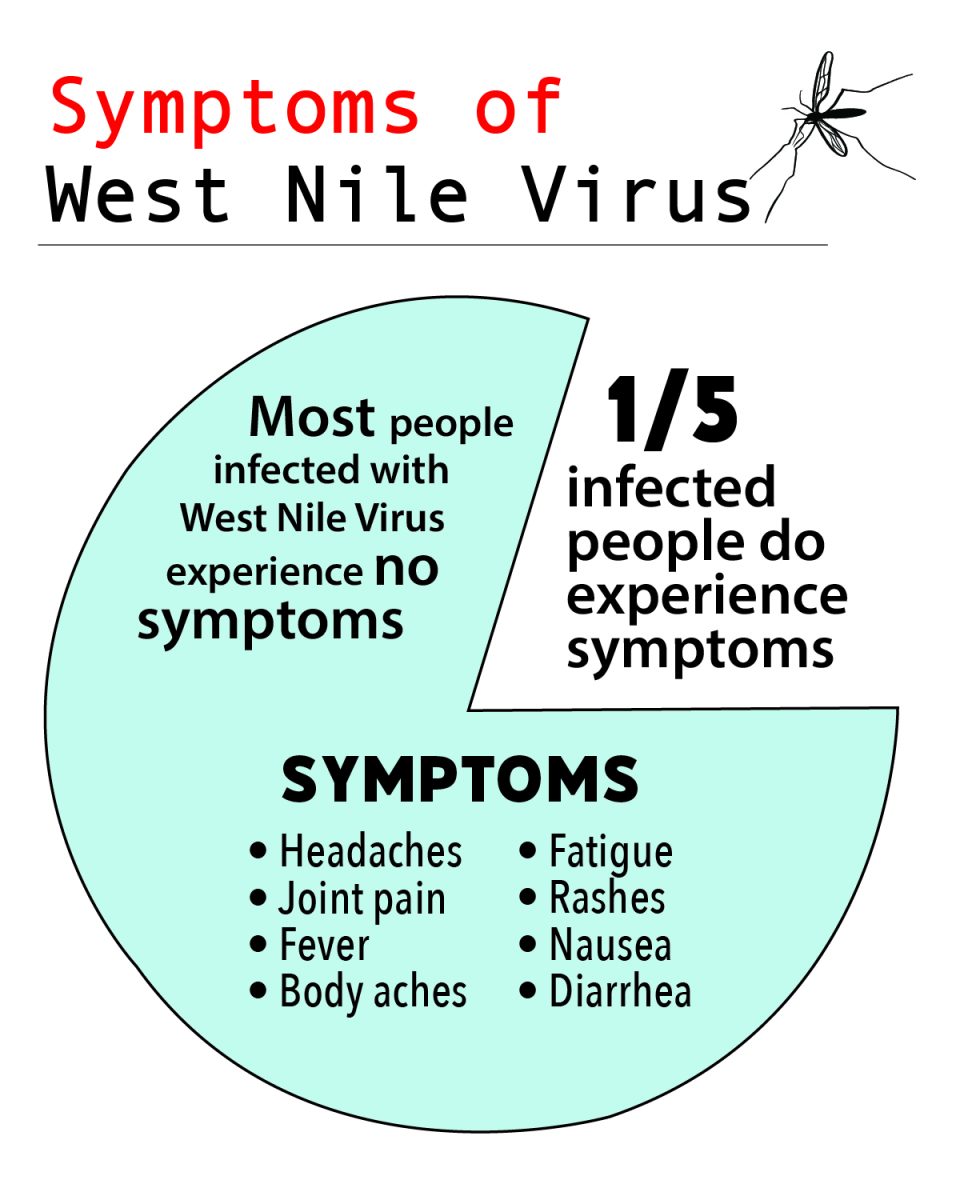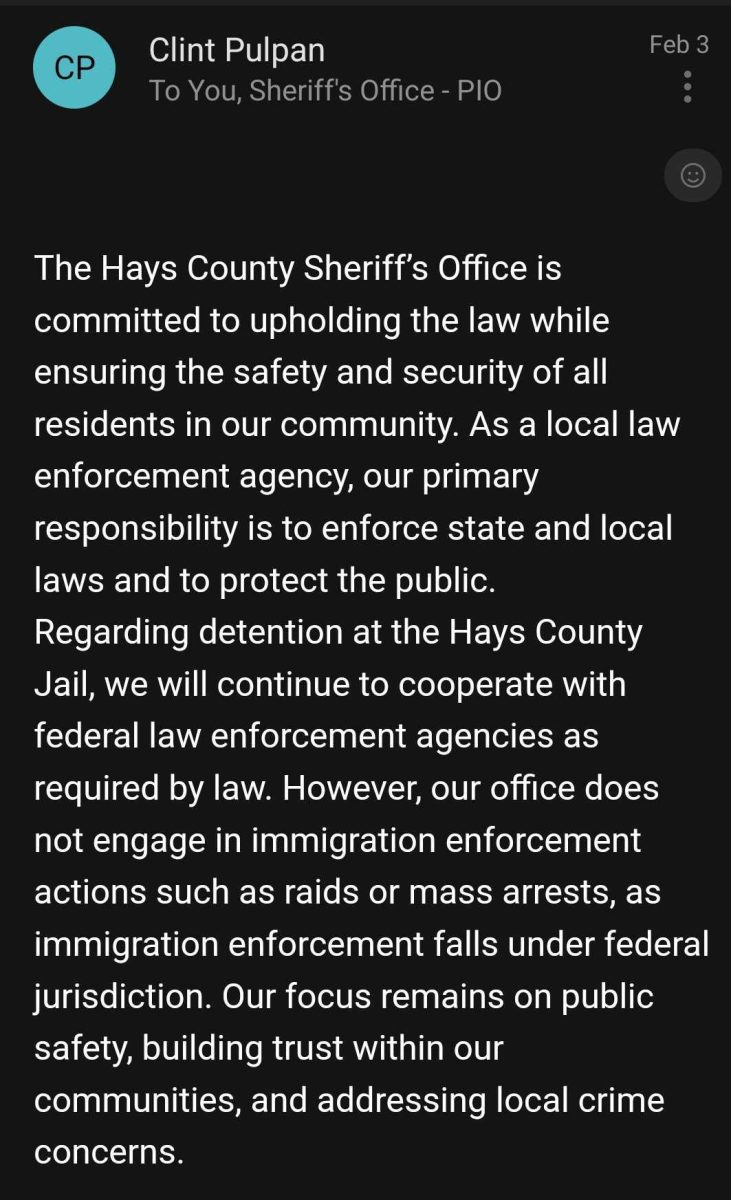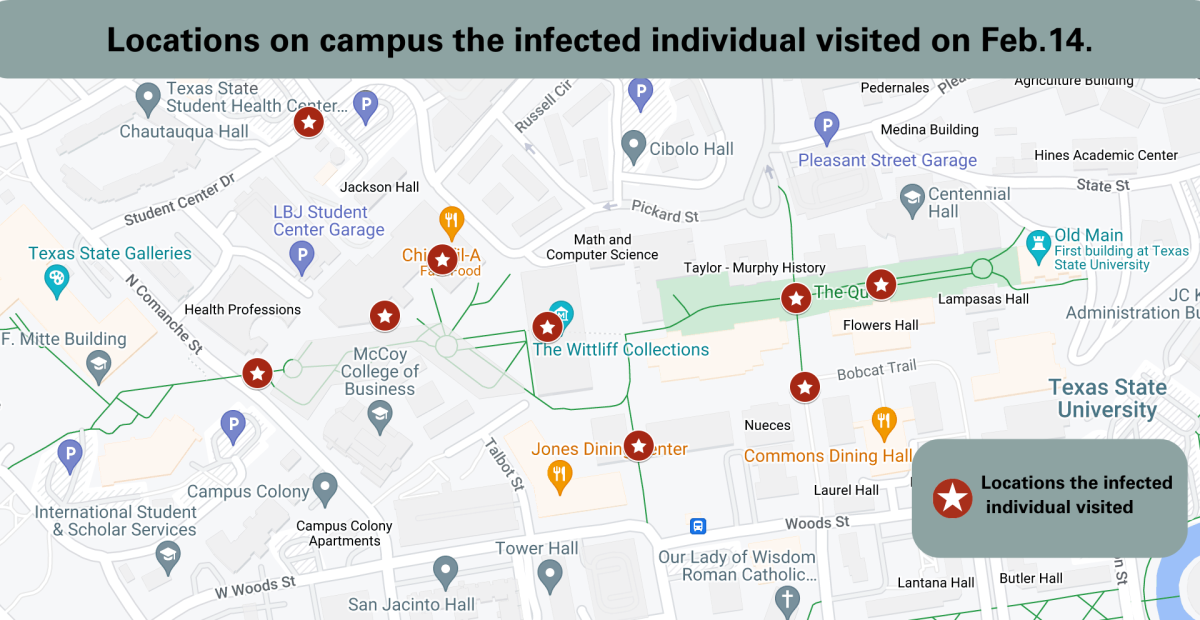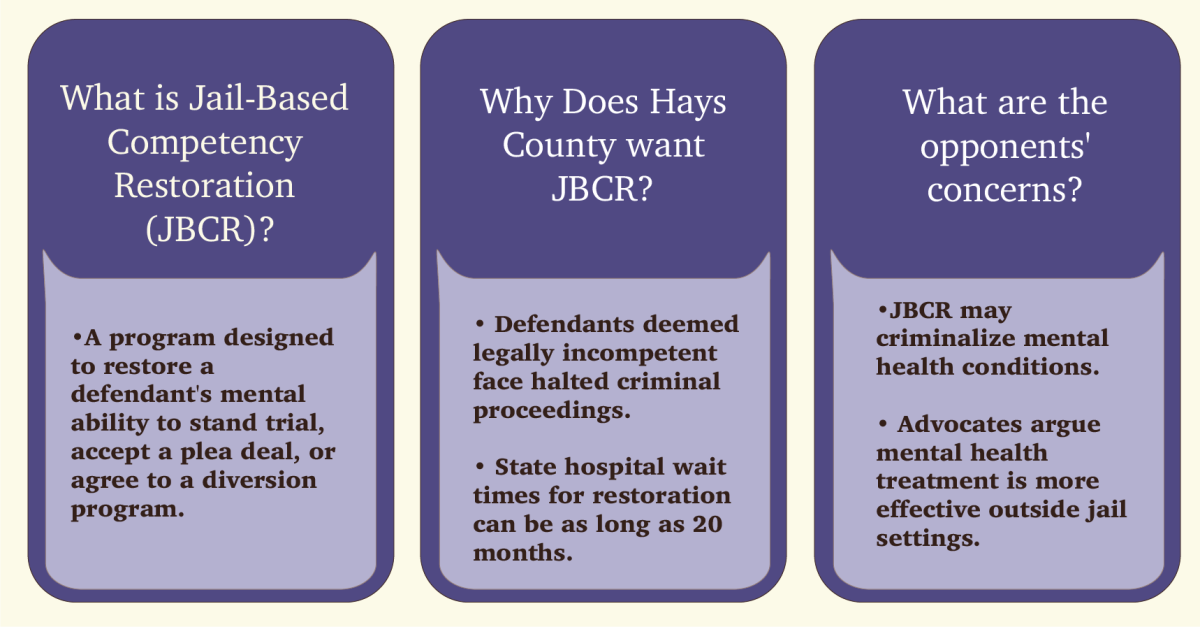West Nile Virus (WNV) was detected in two pools of mosquitoes and one person in Hays County.
According to a press release from the Hays County Health Department (HCHD), this is the first time this year that WNV has been detected in a person.
“This is the first reported human case of WNV for the 2024 season in Hays County. The patient is a resident of the 78610 [Buda] ZIP code and was diagnosed with West Nile Fever,” the press release said.
WNV cannot spread by person-to-person contact but instead spreads by bites from mosquitos that have bit infected birds.
“People are considered dead-end hosts because, unlike birds, they do not develop high enough levels of virus in their bloodstream and cannot pass the virus on to other biting mosquitoes,” the Center for Disease Control and Prevention’s website said.
The virus was first detected in mosquitoes near Wimberley but has since been detected in a second group of mosquitos outside San Marcos city limits.
According to the HCHD, recent rainfall contributed to the spread of WNV by providing more stagnant water for mosquitoes to reproduce in.
“We encourage everyone to take proactive steps to prevent mosquito bites by reducing areas of standing water around their homes and properties,” Eric Vangaasbeek, the chief environmental health specialist at Hays County Development Services said in a statement.
According to the CDC, the majority of people will experience no symptoms from WNV, but 20% of infected individuals will experience flu-like symptoms and a small number can experience severe symptoms such as paralysis, nerve damage, swelling of the brain and death in extreme cases.
Since WNV virus has flu-like symptoms, it can easily be confused for other viruses. To avoid that issue, HCHD recommends doctors begin doing blood tests for WNV.
“WNV is very difficult to distinguish from other viruses. Severe cases are extremely rare, but we still like to express how dangerous it can be,” Ian Harris, an epidemiologist at the HCHD said.
Harris said individuals who are 50 years old or older and individuals with weak immune systems are significantly more likely to experience severe cases, but it can happen to anyone.
To reduce the spread of West Nile Virus, the HCHD recommends that everyone, especially those at higher risk, follow what they call “The Three Ds.”
“Drain stagnant water, dress in long sleeves and pants and use insect repellant that contains the active ingredient DEET,” Harris said.
Harris recommends dressing in clothing mosquitoes can’t bite through and wearing insect repellants when traveling anywhere along I-35. According to Texas Health and Human Services, several other counties on I-35 have detected WNV including Travis and Williamson Counties.
According to HCHD, 2024 has seen almost a 150% increase in mosquitoes detected with WNV from 2023. Harris expects to see this trend continue as rainfall continues to provide mosquitoes location to rapidly reproduce.
“Mosquitoes can breed in as little as one teaspoon of standing water. By draining all sources of standing water in and around your property, you reduce the number of places mosquitoes can lay their eggs and breed,” the press release from HCHD said.
Besides just removing stagnant water, HCHD also recommends trying to minimize ways mosquitoes can get indoors, such as not opening windows that do not have screens on them or leaving doors open.
For more information on the West Nile Virus, visit the CDC’s website.




















